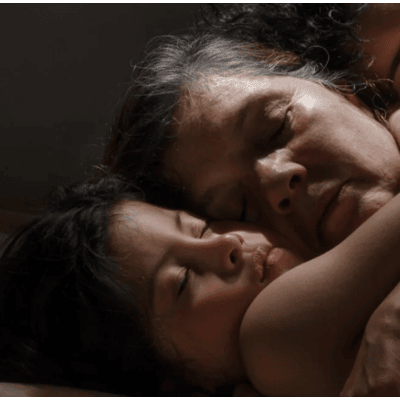Image credit: Isolde Woudstra
Interview with Alison Gopnik, Founder of The Social Science of Caregiving research project
Image credit: Paola Lizarazo Peña
Early Childhood Matters 2023 – What does wellbeing mean for parents and other caregivers?


Becoming a parent is a time of transformation and change. It is estimated that there are over 500 million parents of children under five worldwide, representing a significant portion of the global population.
Initiatives that support parental wellbeing have started to emerge across the globe, but more can be done to translate that knowledge into practice and replicate more widely, with many communities still lacking support.
While beautiful and fulfilling, becoming a parent and engaging in the required intensive care of infants is also a period of uncertainty, stress and adaptation for the caregiver. This is in part due to changes that occur in the structure and function of parents’ and caregivers’ brains and bodies. The same changes that activate neural connections supporting attachment and empathy also increase emotional and physiological sensitivity, enhancing a parent’s capacity to respond to their infant’s needs. Research documenting and explaining “the parental brain” are relatively new and recent evidence suggests that these brain adaptations continue for at least six years after becoming a parent.
These changes are combined with external demands – such as work, childcare, and an overload of parenting advice and expectation, in addition to drastic shifts to the way we live due to urbanisation, advances in technology and changing demographics. Families do not always have a network of support, which means they often end up caring for their children in isolation and without policies and services that support them. Caregiving challenges are compounded when parents are already facing difficult circumstances – such as displacement, exposure to violence, or economic and financial hardship. All these factors combined mean that all new parents could use support for their wellbeing.
Wellbeing is the combination of functioning well and feeling good about life. This is a broad and holistic definition, and can refer to parents’ and caregivers’ social, physical and mental health, as well as their material conditions, and sense of purpose and meaning.
Efforts that recognise the importance of listening to and supporting parents and caregivers, that strengthen the support networks around them and offer ways to support their own health and wellbeing, have been shown to have a hugely positive effect.
We need to recognise that when a baby is born, a parent is also born. The opportunities and potential impact of investing in parental wellbeing are clear: How well a parent is supported from the start not only shapes them, but influences their children, families and whole communities.
For more inspiration, we recommend reading the links below:

Image credit: Isolde Woudstra
Interview with Alison Gopnik, Founder of The Social Science of Caregiving research project

Image credit: Paola Lizarazo Peña
Early Childhood Matters 2023 – What does wellbeing mean for parents and other caregivers?
This website is translated using a plugin. There may be errors or inconsistencies.
If in doubt or have questions, please refer to the Entrant Handbook for the correct information:
Entrant Handbook (English) | Entrant Handbook (French) | Entrant Handbook (Indonesian) | Entrant Handbook (Portuguese) | Entrant Handbook (Spanish)